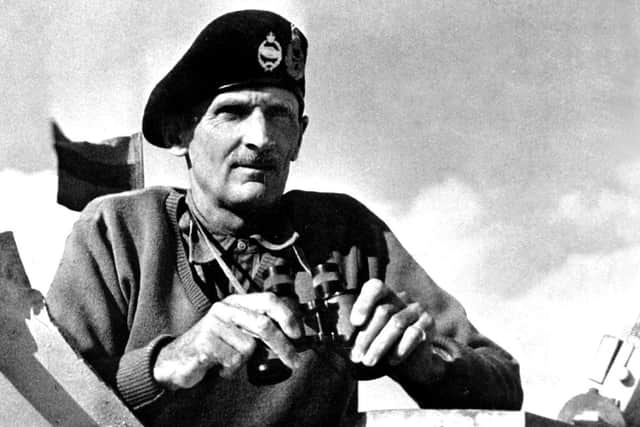The story of Bernard Law Montgomery of the Royal Warwickshire Regiment and VE Day
and live on Freeview channel 276
Across the UK people will be celebrating the 75th anniversary of VE Day and remembering those lost in the Second World War.
Many soldiers played their part in the events that lead to VE Day, including Bernard Law Montgomery who was in The Royal Warwickshire Regiment.
Advertisement
Hide AdAdvertisement
Hide AdThe team at the Fusiliers Museum in Warwick have shared the story of Bernard, known as Monty, and the role he played in the Second World War and VE Day.


In 1908, at the age of 21 years, Bernard Law Montgomery, the son of a Church Minister, was commissioned from officer school at the Military Academy Sandhurst into The Royal Warwickshire Regiment.
He moved to France with the Regiment at the start of World War One and quickly saw action during which he was wounded.
He was appointed as a Staff Officer – desk job - role in France for the remainder of the war and this gave him an insight into the type of military thinking and planning which took place and with which he became increasingly frustrated.
Advertisement
Hide AdAdvertisement
Hide AdBetween the wars, he wrote copiously about the need for a more mobile form of warfare to replace the static strategies of the Great War.
He commanded the Royal Warwickshire Regiment in Palestine and India before promotion to Brigadier, followed swiftly by promotion to Major General to command a Division which formed part of the British Expeditionary Force (BEF) sent to Europe at the outbreak of the Second World War.
Thanks to his training regime, his force was able to withdraw with great professionalism almost intact through Dunkirk with minimum casualties.
Back in England, he made no secret of his criticism of the War Office and senior officers about the conduct of the operations of the BEF and of the shortage of equipment which had hampered his operations.
Advertisement
Hide AdAdvertisement
Hide AdIn August 1942, he took command of the 8 th Army in North Africa and immediately set about preparing for operations to defeat the German and Italian armies led by Rommel.
He visited as many of the troops as possible, impressing them with his vision that “we are in the right” and with his supreme confidence. While with a tank regiment near the front line, he discarded his peaked cap in favour of a tank crew beret into which he attached his general’s badge.
This had such a positive impact on morale that he wore that beret for the rest of the war.
He put his theory into practice reorganising the 8 th and liaising closely with Air Force HQ for combined operations.
Advertisement
Hide AdAdvertisement
Hide AdAlthough the politicians were pressing him to “get on with it”, he steadfastly refused to do so until he had properly reorganised, made a detailed plan based on intelligence information and assembled adequate reserves of fuel, ammunition, food and manpower and provided time for troops to be fully trained.
Finally, in October, “Monty” launched his attack on Alamein which ended 12 days later with total victory, a theme which continued in North Africa until the German-Italian armies were defeated.
Next came Sicily with the American Army. Monty considered their plans unworkable and insisted that they be altered to achieve the best concentration of all forces.
This ruffled feathers but was shown to be the correct approach in that victory resulted once again. In late 1943, the 8 th Army formed part of the assault on Italy. Again, Monty riled against the lack of coordination and the muddled strategic thinking.
Advertisement
Hide AdAdvertisement
Hide AdDespite some internal and political objections, in early 1944 Montgomery was appointed to command all Allied Land Forces for the invasion on D-Day under the overall command of General Eisenhower, a position which he held until finally on May 4 1944 at Luneburg Heath he took the surrender of all German Forces in North East Germany.
Monty could be difficult. He was small in stature but he had an unshakeable conviction in the just nature of his cause and that he was always right, as proven by his victorious track record.
Winston Churchill is said to have described him “....in defeat, unbeatable, in victory insufferable...”
Whatever one’s opinion, this ‘Warwickshire Lad’ was a major contributor to the success which we celebrate on VE Day.